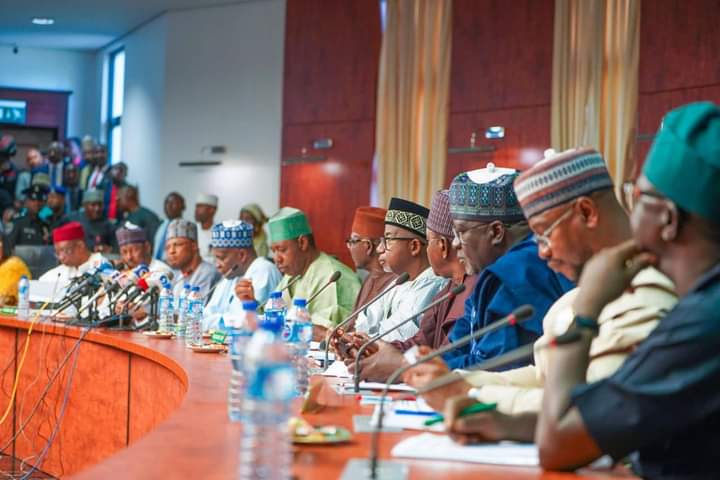Twenty-two states collectively spent ₦251.79bn on debt servicing within the first nine months of their current administrations, according to findings by Sunday PUNCH.
Despite increased monetary allocations from the Federation Account, these states also secured fresh loans totaling ₦310.99bn between July 2023 and March 2024.
The data, sourced from the Open Nigerian States platform supported by BudgIT, a civic organization promoting budget transparency, revealed that states including Abia, Akwa Ibom, Anambra, Benue, Cross River, Delta, and others faced significant fiscal challenges. These challenges included inherited domestic and external debts amounting to N2.1tn and $1.9bn, respectively.
Further analysis indicated the states are struggling with unpaid workers’ salaries, pension liabilities, and the implementation of the nationally agreed minimum wage amid rising inflation and dwindling purchasing power.
For example, Abia State Governor Dr. Alex Otti inherited a domestic debt of N104.57bn and an external debt of $95.63m. Similarly, the governors of Benue, Cross River, and Akwa Ibom inherited substantial debts from previous administrations.
The removal of fuel subsidies and the unification of foreign exchange markets have resulted in increased earnings from the Federation Account Allocation Committee (FAAC), totaling N3.34tn post-subsidy era. This has allowed states to address some of their fiscal obligations and reduce the financial burdens left by past administrations.
The debt servicing costs have surged partly due to the devaluation of the naira, which has increased the cost of servicing foreign debt. States spent N75.47bn on debt servicing in Q3 2023, N79.34bn in Q4, and N96.99bn in Q1 2024.
Notable expenditures include Abia State’s N2.62bn, Akwa Ibom’s N21.96bn, and Delta State’s N30.31bn on debt servicing. Despite these payments, many states have continued to obtain new loans to cover various expenditures.
Increased FAAC allocations, reaching a seven-year high in 2023, have not prevented states from incurring additional debts. States received N627.73bn in September, N610.5bn in December, and N555.75bn in August.
Several states, including Katsina, Ondo, and Niger, have taken significant loans in early 2024. Many of these loans have been sourced from international creditors despite the federal government’s preference for domestic borrowing.
Economist Paul Alaje commented that the heavy debt burdens could stifle economic development at the sub-national level. He emphasized the need for proper scrutiny of loans and their usage by state governments.
Efforts to get comments from the Nigeria Governors’ Forum and various state officials were largely unsuccessful. However, a top government official from Sokoto State mentioned that debt servicing is an integral part of governance, even if it involves debts from previous administrations.
Ondo State Governor Lucky Aiyedatiwa stated that his administration has been managing inherited debts without borrowing anew, and debt servicing has not adversely affected the state’s economy.
This article is sourced from The Punch newspaper, with minor edits and adaptations by The Spectacles for clarity and readability.
